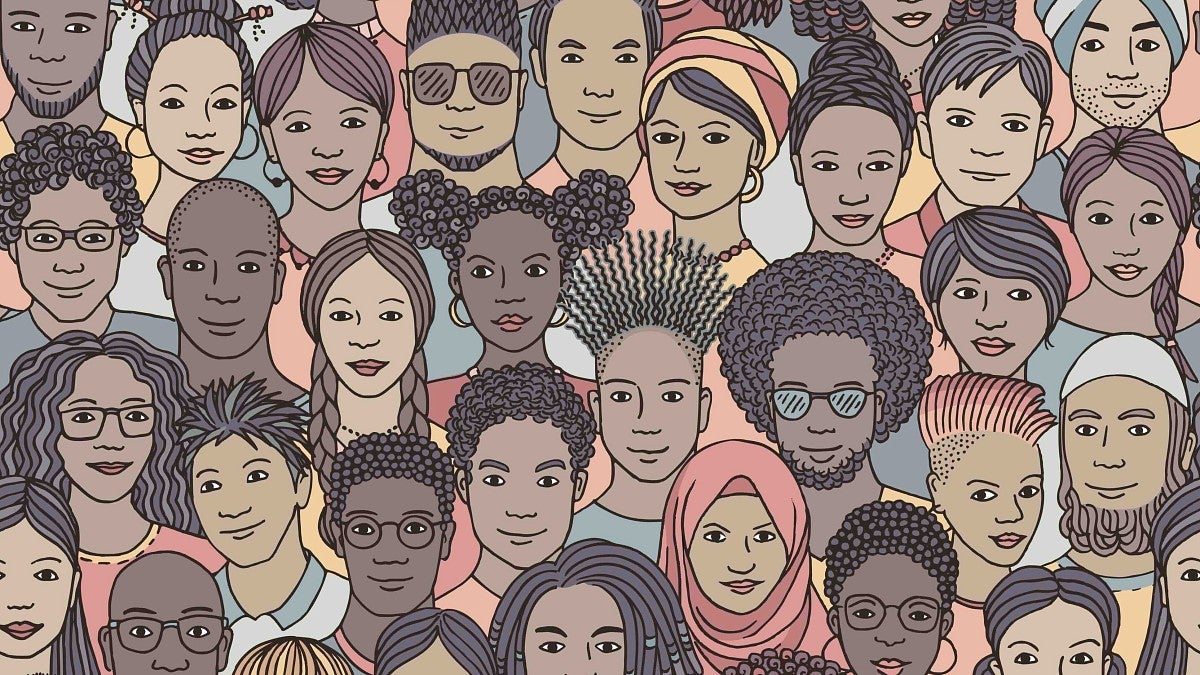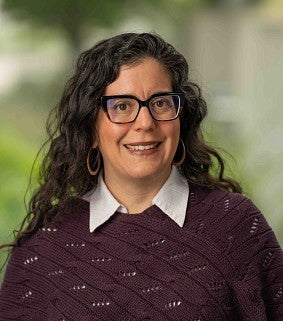
More than 100 years ago, US civil rights activist and scholar W.E.B. Du Bois asked, “How does it feel to be a problem?” Reading that in Du Bois’s “The Souls of Black Folk” stuck with University of Oregon College of Arts and Sciences professor Jessica Vasquez-Tokos as she wrote her recently published book “Burdens of Belonging: Race in an Unequal Nation.”
Published by New York University Press, Vasquez-Tokos's book explores how race shapes the everyday experiences of individuals and what it means to be a “so-called problem” in the predominantly white state of Oregon in the 21st century.
“How does racial status inflect one’s sense of belonging in the nation?” said Vasquez-Tokos, professor in the Department of Sociology (and affiliated with Indigenous, Race and Ethnic Studies). "I'm dealing with race. I'm dealing with nationhood. I'm dealing with belonging. I'm dealing with inequalities.”

Vasquez-Tokos's research area began when she was an undergraduate student writing her senior thesis, studying how racial identities impacted individuals. The process of conducting undergraduate research—interviewing Chicana women writers and analyzing their written work—was also a reflection of her experience as a student.
“I grew up in California, and then I went to a university on the East Coast, and the demographics were so different. My identity was asked about or almost needed to be explained in a certain way in a predominantly white campus,” Vasquez-Tokos said. “There, the intellectual curiosities also became very personal in terms of, ‘Oh, race matters in a way that I wasn’t used to.’”
As Vazquez-Tokos did research for her book, she conducted 70 interviews with people of varying racial and ethnic backgrounds in Oregon, exploring how identities impacted the shape of one’s life. Her interviews revealed how stereotypes and preconceived notions form the experiences of people of differing racial identities. From goals that they made for themselves to the precautions they felt they needed to take to be safe, interviewees shared a wide array of experiences driven and shaped by their racial identity.
Vasquez-Tokos hopes “Burdens of Belonging” represents an educational opportunity for people to learn from others’ experiences, and become “more informed, more knowledgeable, more caring, and more empathetic.” Through this, people can deconstruct the societal norms that demonize and oppress certain groups of people, which could lay the groundwork to validate people who have felt vilified or ostracized because of their identities.
“I'm hoping that it puts people's lives in a bigger picture and takes the weight off a little bit. There are burdens that come along with being a racialized individual in a nation that values whiteness, and that's a weighty burden,” Vasquez-Tokos said. “To have that lifted in any way for a reader of color of the book, I think would be a real blessing.”
Vasquez-Tokos hopes that "Burdens of Belonging" highlights lived experiences and the ways that perceived racial identities impact our lives. And it all returns to what Du Bois’s seminal sociological book "The Souls of Black Folk" and what he described as "double consciousness," the social condition in which marginalized communities see themselves through their own eyes but also through the perspective of the narratives maintained by the dominant society.
"I know who I am, but I also know how others perceive and categorize and treat me," Vasquez-Tokos said. "Race and racial inequality seep into all domains of social life."
— By Grace Connolly, College of Arts and Sciences
